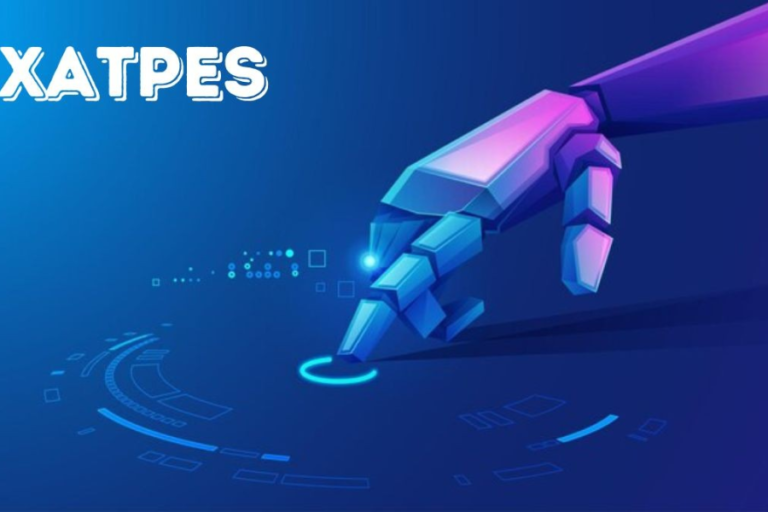Mastering data 140 without cs70: Overcoming the Challenges
For many aspiring data scientists, the appeal of advanced courses like Data 140 is undeniable. The opportunity to delve into complex algorithms, statistical modeling, and large-scale data analysis is thrilling. However, succeeding in these areas often requires a robust foundation in computer science, typically provided by prerequisite courses such as data 140 without cs70. Attempting to excel in Data 140 without this essential background can be quite challenging. In this article, we’ll explore the hurdles involved, discuss strategies to bridge the knowledge gap, and share success stories from individuals who have successfully navigated this challenging path.
Grasping data 140 without cs70 Background
Data 140 is an upper-level data science course that covers a broad range of topics, including probability, statistical inference, and machine learning. Mastery of this material requires a strong grasp of mathematical principles and computational techniques. Conversely, data 140 without cs70is a fundamental computer science course that introduces students to algorithms, data structures, and discrete mathematics, forming the groundwork for understanding more advanced data science topics.
Why is data 140 without cs70so essential? It equips students with the critical thinking and problem-solving skills necessary for data science. Without this preparation, students may find it difficult to understand the algorithms and mathematical concepts fundamental to advanced data analysis. This lack of comprehension can impede their ability to work effectively with data, leading to frustration and hindered progress.
Challenges of Skipping data 140 without cs70
One of the main difficulties of bypassing data 140 without cs70is the knowledge gap that ensues. Students often find themselves struggling with concepts that are straightforward for those who have completed data 140 without cs70. For instance, grasping the nuances of probability or understanding the logic behind specific algorithms can be daunting without a solid foundation in discrete mathematics.
Consider a real-world scenario: implementing a machine learning algorithm without understanding the underlying data structures. This could result in inefficient code, inaccurate models, and ultimately unreliable conclusions. Not only does this affect the quality of analysis, but it also undermines the credibility of the results.
Another challenge is the increased complexity of the course material. Data 140 is designed for students with a comprehensive understanding of computer science principles. Without this background, the coursework can be overwhelming. Students might spend an excessive amount of time trying to understand basic concepts, leaving little opportunity for in-depth exploration and application.
Strategies for Closing the Knowledge Gap
Despite these challenges, succeeding in Data 140 without a data 140 without cs70background is possible. The key lies in adopting a proactive approach and utilizing available resources. Here are some practical strategies to bridge the knowledge gap:
1. Self-Study and Online Learning
Building a solid foundation in computer science through self-study is highly effective. Numerous online courses and tutorials cover the fundamental topics taught in data 140 without cs70. Platforms like Coursera, edX, and Khan Academy offer comprehensive courses on algorithms, data structures, and discrete mathematics. By dedicating time to these resources, students can acquire a thorough understanding of the essential concepts needed for Data 140.
2. Participate in Online Communities
Engaging with online communities of data enthusiasts and computer science students can provide valuable support and insights. Websites like Reddit, Stack Overflow, and specialized forums allow students to ask questions, share resources, and seek advice from experienced individuals. Participating in discussions and collaborating with others can help clarify complex concepts and offer new perspectives.
3. Practice Problem-Solving
To reinforce understanding and enhance problem-solving skills, regular practice is crucial. Many websites offer coding challenges and exercises that cover various computer science topics. LeetCode, HackerRank, and CodeSignal are popular platforms that provide structured practice problems and solutions. By consistently working on these challenges, students can develop the critical skills needed to tackle advanced data science problems.
4. Seek Mentorship
Finding a mentor with expertise in both computer science and data science can be incredibly beneficial. Mentors can provide guidance, share their experiences, and offer personalized advice on how to approach difficult topics. Academic advisors, professors, and industry professionals can serve as valuable mentors for students navigating the complexities of Data 140.
Stories of Success and Lessons Learned
To inspire those facing the challenges of Data 140 without a data 140 without cs70background, let’s look at some success stories from individuals who have successfully navigated this path. These individuals faced similar struggles but managed to overcome them through determination, resourcefulness, and effective strategies.
Success Story 1: Jane’s Journey
Jane, a data enthusiast with a background in economics, decided to enroll in Data 140 without prior computer science knowledge. Initially, she felt overwhelmed by the complex algorithms and mathematical concepts. However, Jane adopted a disciplined approach to self-study, dedicating several hours each week to online courses and coding exercises. She actively participated in online communities and sought guidance from experienced data scientists. Through consistent effort and perseverance, Jane was able to bridge the knowledge gap and excel in Data 140. She now works as a data analyst at a leading tech company.
Success Story 2: John’s Determination
John, a marketing professional with a passion for data science, faced similar challenges when attempting Data 140 without a data 140 without cs70background. He found it difficult to keep up with the pace of the course and often felt lost in lectures. Determined to succeed, John joined a study group with fellow students who had a stronger computer science foundation. They collaborated on assignments, shared resources, and helped each other understand difficult concepts. Additionally, John sought mentorship from a senior data scientist at his company, who provided invaluable guidance and support. With the help of his study group and mentor, John successfully completed Data 140 and now applies his data science skills to optimize marketing strategies.
Success Story 3: Sarah’s Persistence
Sarah, a biology major with a keen interest in data science, took on the challenge of Data 140 without data 140 without cs70. She initially struggled with the mathematical concepts and found it difficult to apply them to real-world problems. To overcome this, Sarah supplemented her coursework with additional reading materials and online tutorials. She also attended office hours and sought clarification from her professors whenever she faced difficulties. Sarah’s dedication and perseverance paid off, and she not only completed Data 140 but also gained a deeper appreciation for the importance of a strong computer science foundation. Today, she is pursuing a career in bioinformatics, where she combines her biology and data science expertise.
Conclusion
In conclusion, tackling Data 140 without a data 140 without cs70background can be challenging, but it is not impossible. By adopting proactive strategies such as self-study, joining online communities, practicing problem-solving, and seeking mentorship, data enthusiasts can bridge the knowledge gap and succeed in advanced data science courses. The success stories of individuals who have navigated this path serve as a testament to the power of determination and resourcefulness.
For those embarking on this journey, remember that continuous learning and improvement are key. Building a strong foundation in computer science will not only enhance your understanding of data science concepts but also open up new opportunities for growth and success. Don’t be discouraged by initial difficulties—embrace the challenges, seek support, and keep pushing forward. The rewards of mastering advanced data science are well worth the effort.






